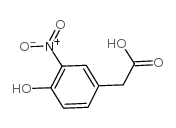Intraclonal competition inhibits the formation of high-affinity antibody-secreting cells.
Thuc-vy L Le, Tea Hyun Kim, David D Chaplin
Index: J. Immunol. 181(9) , 6027-37, (2008)
Full Text: HTML
Abstract
Protective immunity requires a diverse, polyclonal B cell repertoire. We demonstrate that affinity maturation of the humoral response to a hapten is impaired when preexisting clonally restricted cells recognizing the hapten are dominant in the B cell repertoire. B1-8i(+/-) mice, which feature a high frequency of B cells with nitrophenyl (NP)-binding specificity, respond to NP-haptenated proteins with the production of NP-specific Abs, but affinity maturation is impaired due to insufficient generation of high-affinity Ab-producing cells. We manipulated the frequency of NP-specific B cells by adoptive transfer of B1-8 B cells into naive, wild-type recipients. Remarkably, when 10(4) B1-8 B cells were transferred, these cells supported efficient affinity maturation and plasma cell differentiation. In contrast, when 10(6) B1-8 cells were transferred, affinity maturation did not occur. These data indicate that restricting the frequency of clonally related B cells is required to support affinity maturation.
Related Compounds
| Structure | Name/CAS No. | Molecular Formula | Articles |
|---|---|---|---|
 |
4-Hydroxy-3-nitrophenylacetic acid
CAS:10463-20-4 |
C8H7NO5 |
|
B cells in T follicular helper cell development and function...
2014-04-01 [J. Immunol. 192(7) , 3166-79, (2014)] |
|
A role for lysosomal-associated protein transmembrane 5 in t...
2010-07-01 [J. Immunol. 185(1) , 294-301, (2010)] |
|
The pericyte and stromal cell marker CD248 (endosialin) is r...
2010-07-01 [Eur. J. Immunol. 40(7) , 1884-9, (2010)] |
|
Early B blasts acquire a capacity for Ig class switch recomb...
2011-12-01 [Eur. J. Immunol. 41(12) , 3506-12, (2011)] |
|
Escherichia coli NsrR regulates a pathway for the oxidation ...
2008-09-01 [J. Bacteriol. 190(18) , 6170-7, (2008)] |